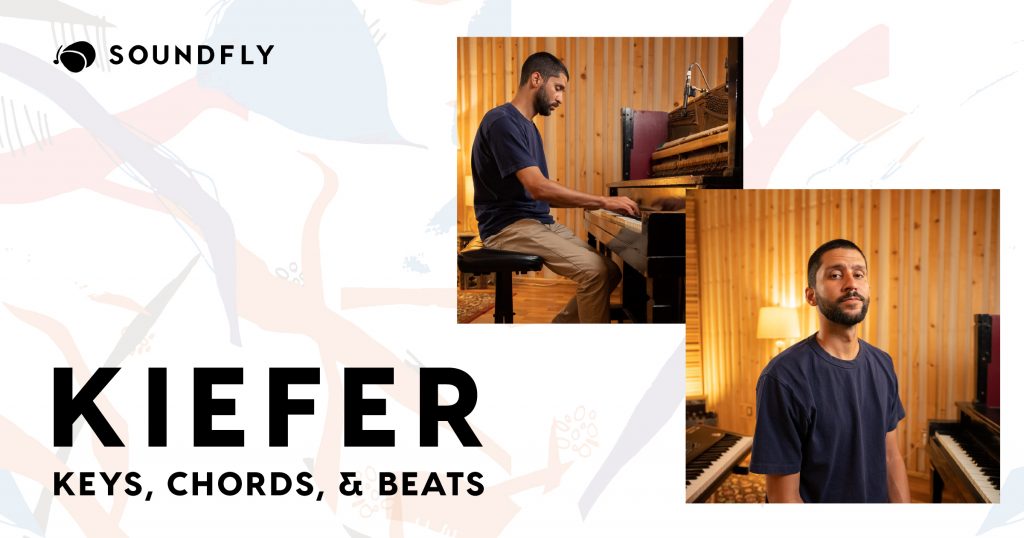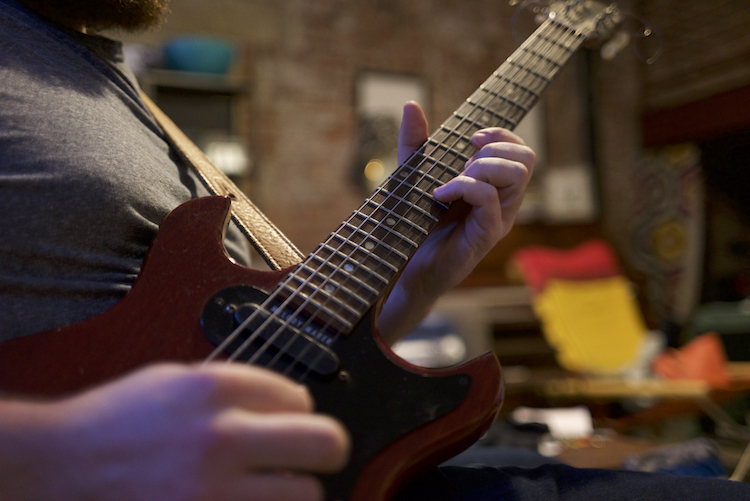+ Take your modern jazz piano and hip-hop beat making to new heights with Soundfly’s new course, Elijah Fox: Impressionist Piano & Production!
Mistakes aren’t all bad.
Don’t be afraid to make them –
just don’t ignore them!
We know that practice doesn’t make perfect.
And while we’re on the subject, we might as well admit to ourselves that 100% flawlessness is impossible, and that most of us don’t have what it takes to be a true perfectionist anyhow.
So that leaves us with a phrase often used in place of the classic aphorism: “Practice makes perfect” — namely: “Practice does not make perfect. Only perfect practice makes perfect” (often credited to the legendary football coach Vince Lombardi).
Thing is, that phrase “perfect practice” too often seems to give people the wrong impression. How so?
Perfect Practice
It’s easy to interpret the word “perfect” in this context to mean that we should avoid errors and mistakes in the practice room. After all, it stands to reason that if we have a habit of making mistakes in the practice room, we’re likely to make mistakes on stage too, right?
Ok, well avoiding mistakes in the practice room would necessitate practicing very carefully and methodically (which isn’t all bad).
It might also mean playing things slowly, and working up to speed gradually (again, not always such a bad thing — though there might also be something to be said for getting the tempo up first, and working on accuracy second on some occasions).
When Perfect Practice Is Bad
But then there are times when this “no-mistakes-allowed” definition of perfect practice makes us afraid to try a new way of doing things — something that might help us take our playing to a new level in the long term, but make us sound worse in the short term.
Or times when we are afraid to stretch ourselves. Reluctant to explore the edges of our current technical ability to see what cool things we might be capable of. Unwilling to really take some risks and go for broke in such a way that might lead us to fall on our face — but could also produce something very compelling to listen to.
Far too many students I’ve spoken with are afraid to experiment and risk sounding bad even in the practice room, fearing the judgment of students who may be passing by or eavesdropping.
And then there are times where it manifests in avoidance — such as spending a disproportionate amount of time working on things you already do well at the expense of skills or passages that are comparatively weak. I am a big believer in cultivating and maximizing our strengths, rather than spending all of our energy shoring up weaknesses (as Tom Rath advocates in CliftonStrengths), but we mustn’t neglect and avoid our weaknesses to protect our ego either.
This will only stunt our growth as musicians, artists, and people in the long run. And limiting our growth in order to protect our ego doesn’t do much to advance the performing arts or make the world a more interesting place to live.
+ Learn how to marry theory, improvisation, and beat making to become a better pianist and producer, with Grammy-winner Kiefer’s Keys, Chords, & Beats.

What “Perfect” Practice Really Means
I’d argue that “perfect” practice is just another name for deliberate practice. Mistakes aren’t the problem. The problem is not taking the time to articulate the specifics of the mistake, the cause of the mistake, and the potential solutions, so you can avoid making that same mistake over and over again.
Take Action
Don’t worry — you don’t have to be afraid of making mistakes in the practice room. Feel free to practice going for broke. Work on things you struggle with. Try new ways of doing things. Experiment freely. Don’t be afraid to sound like crap as long as you know why.
Tired of sounding bad and need an ego boost? No problem. Go ahead and start a practice session by playing something you play well and feel good about. Just don’t let yourself get stuck working on this at the expense of neglecting weaker areas of your repertoire or skill set.
Bonus reading:
My old childhood Suzuki classmate, the acclaimed jazz violinist Christian Howes, has a noteworthy post on “perfect” practice. It has a bit more of a jazz angle of course, but classical folks will find some important takeaways too.
The one-sentence summary:
“If you always sound good in the practice room, you’re probably not doing it right.” ~ Unknown
Play Your Heart Out!
Continue your learning adventure on Soundfly with modern, creative courses on songwriting, mixing, production, composing, synths, beats, and more by artists like Kiefer, Kimbra, Com Truise, Jlin, Ryan Lott, RJD2, and our newly launched Elijah Fox: Impressionist Piano & Production.
—
Performance psychologist and Juilliard alumnus & faculty member Noa Kageyama teaches musicians how to beat performance anxiety and play their best under pressure through live classes, coachings, and an online home-study course. Based in NYC, he is married to a terrific pianist, has two hilarious kids, and is a wee bit obsessed with technology and all things Apple.




